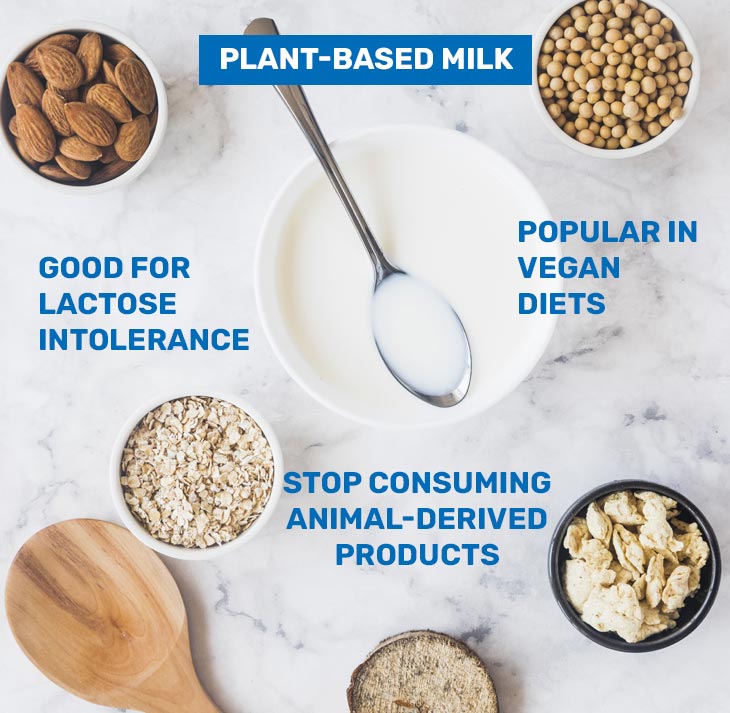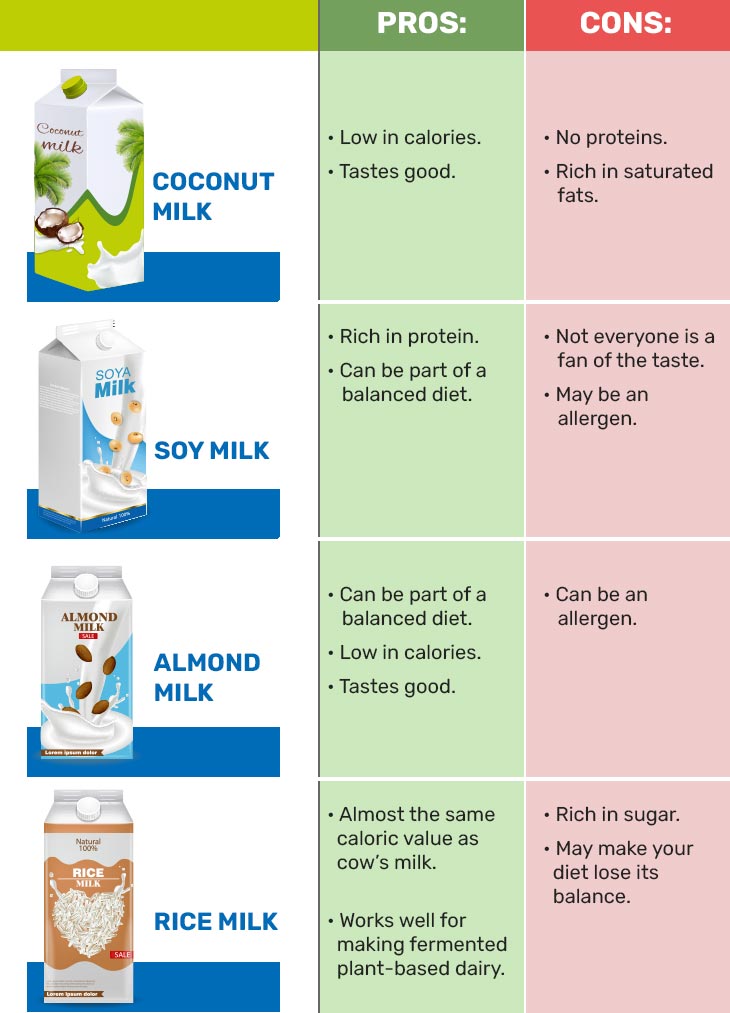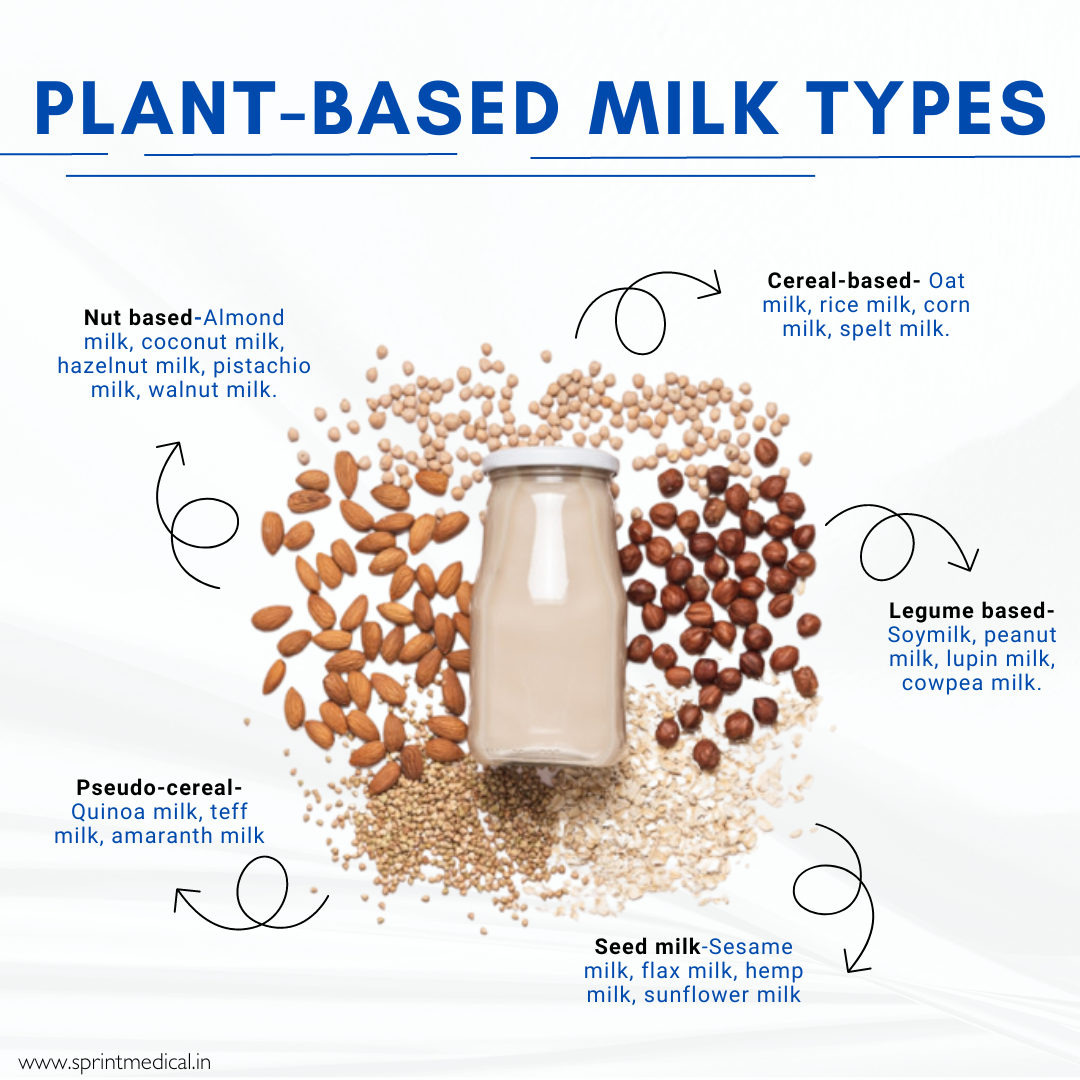Comments
- No comments found

The popularity of plant-based diets and lifestyle choices has spurred a surge in the consumption of vegan milk alternatives.
As more individuals seek healthier and environmentally friendly options, a variety of plant-derived milks, such as almond, soy, oat, and coconut milk, have gained prominence as substitutes for traditional dairy milk. This article delves into the numerous health benefits associated with incorporating vegan milk alternatives into one's diet, highlighting their nutritional value and potential positive impacts on overall well-being.

Vegan milks provide an ideal solution for individuals with lactose intolerance or dairy allergies. These milk alternatives are naturally lactose-free, making them gentle on the digestive system and minimizing discomfort that can be triggered by consuming dairy products.
Many vegan milks are fortified with essential nutrients such as calcium, vitamin D, vitamin B12, and omega-3 fatty acids. These nutrients are crucial for maintaining bone health, supporting immune function, and promoting overall vitality. Fortification enhances the nutritional profile of plant-based milks, making them comparable to or even superior to dairy milk in certain aspects.
Unlike traditional dairy milk, vegan milk alternatives are typically low in saturated fat and cholesterol. These qualities can contribute to heart health by reducing the risk of cardiovascular diseases and maintaining healthy cholesterol levels.
Certain plant-based milk alternatives, like almond and oat milk, are rich in antioxidants that help combat oxidative stress and inflammation in the body. Antioxidants play a crucial role in supporting overall health and reducing the risk of chronic diseases.

Vegan milks cater to a wide range of dietary restrictions, including those who are allergic to dairy, soy, or nuts. These alternatives offer a safe and nutritious option for individuals with various food allergies or sensitivities.
Producing vegan milks typically requires fewer natural resources and produces fewer greenhouse gas emissions compared to conventional dairy farming. Choosing plant-based milk alternatives contributes to a more sustainable and environmentally friendly food system.
Many vegan milks are lower in calories than dairy milk, making them a suitable choice for individuals looking to manage their weight. Additionally, the absence of saturated fat in vegan milks aligns with weight-conscious diets.

The diverse range of vegan milk alternatives available allows individuals to choose options that suit their taste preferences and dietary needs. From nutty flavors to creamy textures, consumers can experiment with different types of vegan milks to find their favorites.
Leave your comments
Post comment as a guest